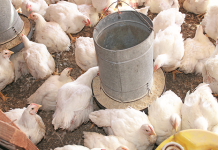The initiative is the result of a partnership between Pioneer Foods and Food & Trees For Africa (FTFA), which seeks to address sustainable development through climate change action, food security and greening, with a strong focus on education and awareness.
“The Limani project provides the opportunity to create food gardens and will at least ensure that the children in the participating schools are food secure,” says Lulu Khumalo, executive of corporate affairs and sustainability at Pioneer Foods.
The Limani project will introduce a form of practical food gardening education for learners and provide food for the schools and surrounding communities. Extra produce can be sold by the school. It’s modelled on other successful FTFA initiatives where schools are clustered so that their communities, including many unemployed parents, work together while sharing knowledge and resources in an effort to improve lives and livelihoods.
“Schools in underprivileged areas tend to experience a drop in concentration in students, as many of them have very little to eat on a daily basis. These vegetable gardens will be an important source of basic foods for those enrolled in and living near the school,” adds Khumalo.
‘Permaculture’ is derived from the term ‘permanent agriculture’, and is defined as “the use of ecology as the basis for designing integrated systems of food production, housing appropriate technology and community development.”
“We are excited to work with Pioneer Foods on this project, which will benefit so many and hopefully be a precursor for more of the same,” says FTFA programme manager Verena Wagner.
“The Limpopo conditions for growing food are good and the Nutrition Directorate of the department of education in Limpopo is very active, making it much easier to execute the programme.
“Each school will receive plant materials, gardening tools, educational resources and practical permaculture workshops to help them to develop their food gardens.”
One of the 16 schools in this pilot project will be developed into a resource centre where others can access learning and materials and receive support. Eventually the seven best schools will become resource centres. The immediate vision for the project is to expand to 75 schools, but it’s hoped that eventually all schools in South Africa will have permaculture food gardens.













